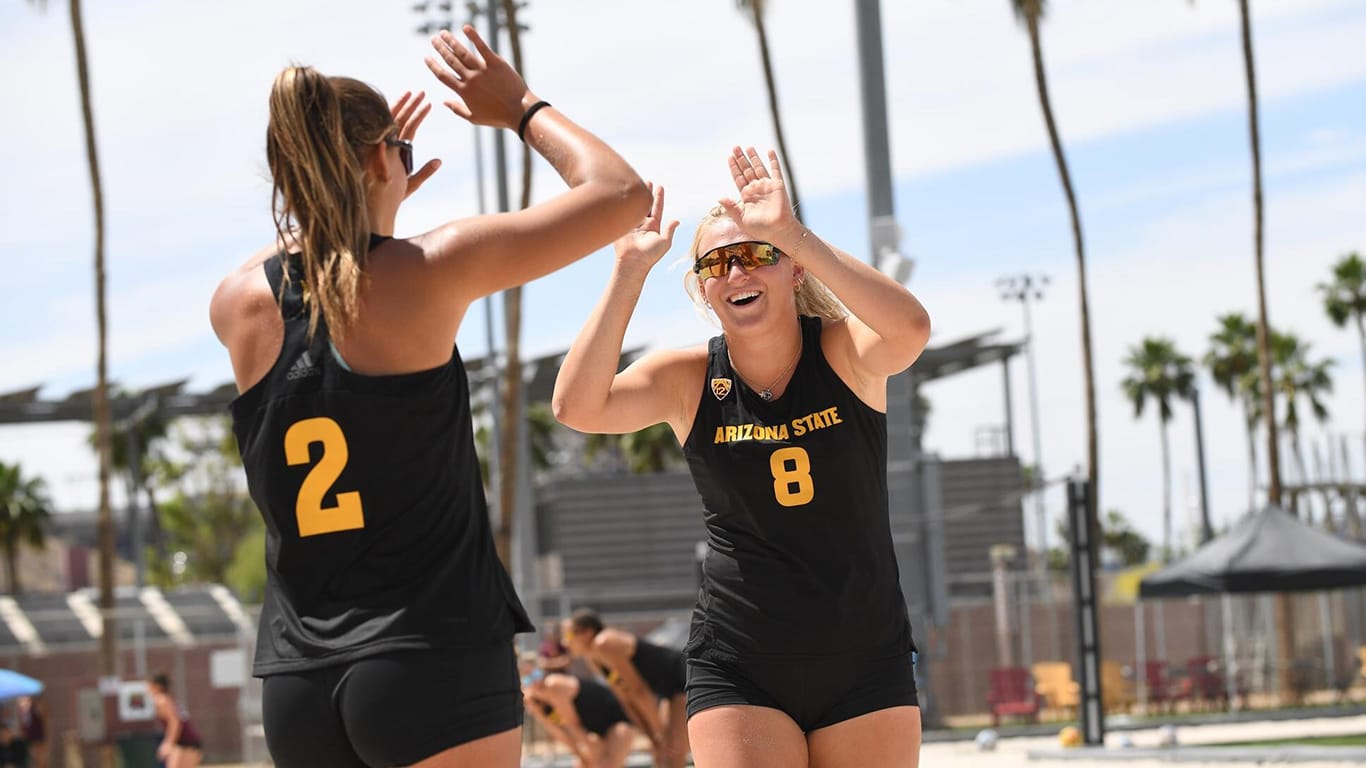Most college freshmen step on campus with a four-year clock to develop real-world skills to land a job in their desired industry through classroom learning, work-study and internships. On top of fulfilling academic demands, students also take on entry-level jobs to earn extra money to go toward any school expenses. However, the same opportunity isn’t afforded to college athletes. But NIL deals are changing that.
LEARN MORE: Desert Financial launches NIL program, signs 5 ASU athletes
MORE NEWS: 20 of the best summer staycation deals in Arizona
Athletes juggle practices, games, travel and schoolwork, leaving them with less time to pursue internships or professional connections. Previously, college athletes were prohibited from monetizing their name, image, and likeness (NIL), denying them income opportunities.
But the landscape is shifting with the introduction of NIL rights for college athletes that allows them to capitalize on their personal brands through endorsement deals, sponsorships and other avenues for monetizing their NIL.
While initially the emergence of NIL provided a legal avenue to pay athletes, it is helping them gain similar experiences to a normal college student and prepare them for life once their playing days are over.
“NIL helps a lot for athletes where we wouldn’t usually get opportunities,” said Arizona State beach volleyball player Kate Fitzgerald. “It’s just not possible to work a full or part-time job anywhere else so it helps us get those career experiences before the career comes.”
Fitzgerald has been one of ASU’s biggest benefactors of NIL since its adoption in June 2021, when the NCAA passed the bill to allow athletes to profit from their name, image and likeness.
The decision inspired Fitzgerald to start her own lifestyle clothing brand company – VB America – after noticing in high school that volleyball fans don’t have as many merchandise options for club and collegiate teams compared to football or basketball. What started as a small business for ASU merchandise, VB America plans to include more universities in its inventory in the future.
“I wanted to see if I could get a license. So I went through the licensing process and got one (with ASU). Now we are moving forward with that as a company to license across universities and wholesale,” Fitzgerald said.
VBAmerica sells multiple styles of ASU clothing with the school’s official logos and is available in all of the university’s campus bookstores. A recent graduate with a degree in biomedical studies, Fitzgerald plans to return for her master’s degree in entrepreneurship and innovation.
Fitzgerald not only got a headstart professionally while competing athletically, but she’s also reaping other unintentional benefits of NIL. Athletes like her are becoming more financially literate through NIL deals, according to ASU’s general manager of NIL Rachel Bacchus.
“A big part of my role is educating. It’s educating (athletes) on how to be responsible, how to pay your taxes, explaining that you have to pay your taxes and helping them learn those life skills in a real, tangible and meaningful way,” Bacchus said.
Bacchus’ education for athletes depends on their NIL arrangements and the deal’s value. Fitzgerald’s business is taking off, for example, but her income hasn’t matched the company’s growth rate.
Other Sun Devils athletes are making life-changing money through NIL deals. Some football and basketball players make hundreds of thousands of dollars from with various companies.
“Some athletes are getting a lot of money. If this guy wants a million dollars, he’s going to have a million dollars. How do you know how to manage a million dollars? When I was 18 or 19, I didn’t. I don’t even think at my age I know how to manage a million dollars easily right now,” Bacchus said.
One ASU athlete who is well off financially from NIL is wrestler Cohlton Schultz. The four-time NCAA All-American signed a deal with the WWE in 2022 and is a part of the organization’s Next in Line program.
As a part of this program, Schultz is working toward potentially joining the WWE. He recently came up one match short of qualifying for the 2024 Paris Olympics but wants to continue to wrestle for the American Greco-Roman team.
“I have a pretty unique opportunity. I got a foot in the door with WWE and they’re supporting all I want to do with Greco-Roman and Olympic wrestling. Once I’m done with that, then I have a foot in the door, I can go wrestle over there for (the WWE),” Schultz said.
Although he did not reveal many details, Schultz did say that the WWE is paying him a large sum of money to be in the Next in Line program.
“It’s been good for me. I’m not struggling, that’s for sure,” said Schultz, who is also known for his charisma and unique hobbies such as pottery and wood churning.
ASU wrestling coach Zeke Jones believes that the WWE would be the perfect opportunity for Schultz once his collegiate and Olympic wrestling days are over.
“He’s got a perfect personality for (the WWE). I think he’d be really good with all the hype that goes with it because you’re jumping off of turnbuckles and throwing chairs over and jumping off of tables and all that crazy stuff,” Jones said. “That’ll probably be down the road after his Olympic career is over, but I think he’d be great in the WWE.”
While there is a stereotype developing that NIL is ruining the landscape of college sports with athletes leaving schools for millions of dollars every offseason, the deals are helpful financially and socially to prepare for life after college.
As spring graduates from ASU, Fitzgerald and Schultz are in the same position as any normal college student to enter the real world thanks to the opportunities provided by NIL.
“What’s really unique about NIL opportunities are the opportunities for athletes to get those career experiences. That may get misconstrued a lot by the media but there’s a different side to NIL that’s really beneficial to athletes,” Fitzgerald said.




